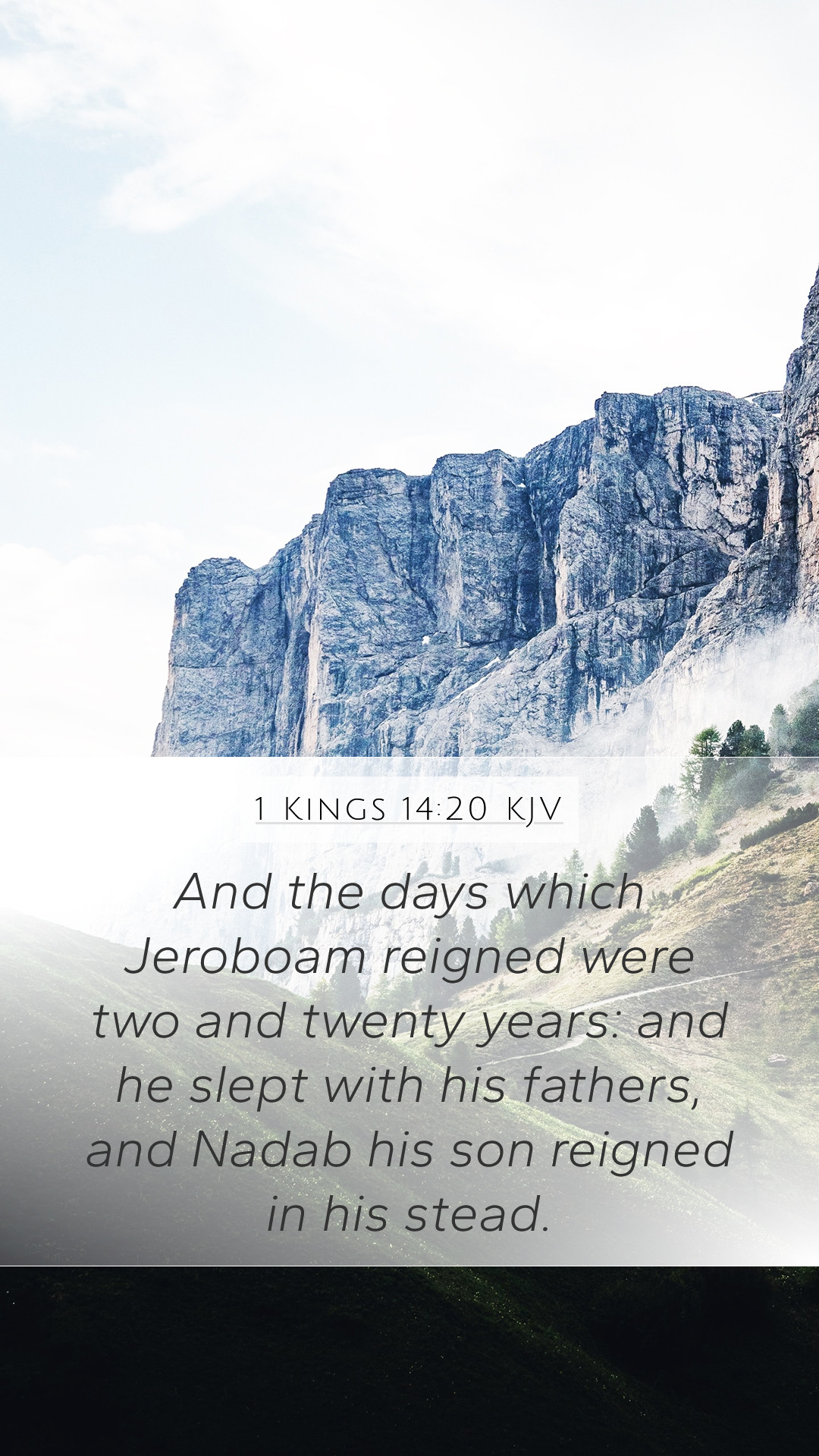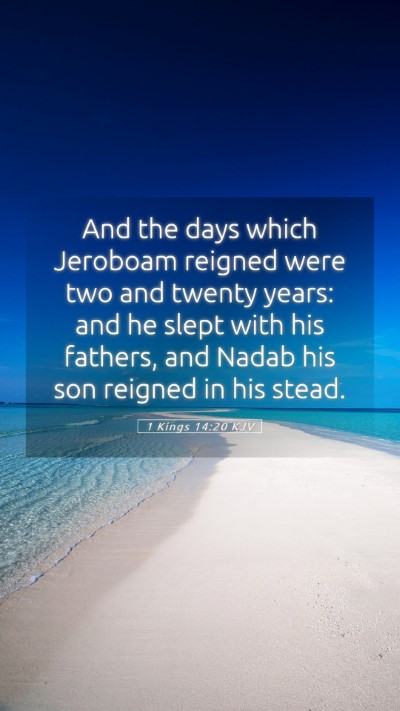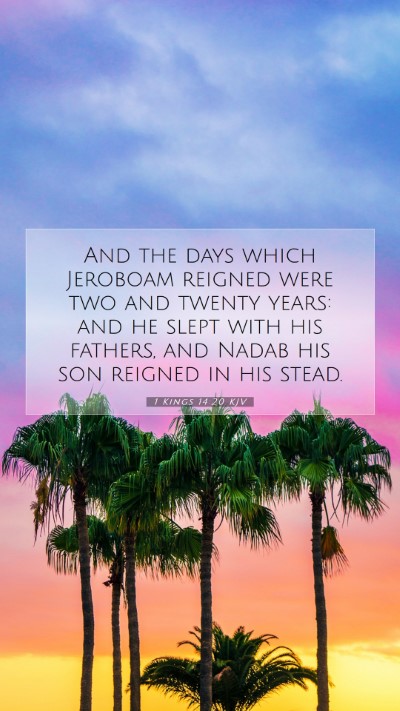Bible Verse Explanation: 1 Kings 14:20
Verse Reference: 1 Kings 14:20 - "And the days which Jeroboam reigned were two-and-twenty years: and he slept with his fathers, and Nadab his son reigned in his stead."
The verse serves as a conclusion to the account of Jeroboam's reign over Israel, marking the end of an era and transitioning to the next generation of leadership. The insights from public domain commentaries provide a deeper understanding of the significance of this passage.
Insights from Public Domain Commentaries
This analysis draws from the works of esteemed theologians including Matthew Henry, Albert Barnes, and Adam Clarke, offering a comprehensive look at this verse's meaning.
Matthew Henry's Commentary
Henry indicates that the mention of Jeroboam's reign duration is not merely historical but serves to reflect God's judgment and the concept of divine authority in governance. The phrase "slept with his fathers" represents a common biblical idiom for death, emphasizing the natural cycle of life and leadership succession.
- Significance of Jeroboam's Reign: Henry highlights how Jeroboam's reign was marked by idolatry and sin, leading Israel astray from God.
- Impact on Future Generations: The transition to Nadab showcases the ongoing consequences of Jeroboam's actions on future leaders of Israel.
Albert Barnes' Commentary
Barnes elaborates on the phrase "slept with his fathers," pointing to the grave nature of kingship in Israel, which involved not just ruling but the encompassing responsibilities, both spiritual and temporal. The tenure of twenty-two years is significant as it reflects the stability of Jeroboam’s reign despite his flaws.
- Duration and Stability: Barnes interprets the length of Jeroboam's rule as an illustration of God's patience and the complexity of His governance.
- Successor Nadab: The commentary delves into the implications of Nadab's ascension, who inherited a kingdom marked by his father’s iniquities.
Adam Clarke's Commentary
Clarke emphasizes the historical aspect of the reign alongside moral lessons. He notes that the record of Jeroboam's reign introduces the themes of divine judgment and mercy, illustrating the nature of God's relationship with His people as both loving and disciplinary.
- Moral Lessons: Clarke points out that Jeroboam's failures serve as warnings against the dangers of straying from divine commandments.
- Legacy and Consequences: The author stresses that Nadab’s reign would bear the residue of his father’s decisions, emphasizing the importance of righteous leadership.
Broader Biblical Context
This verse ties into larger narratives within the Old Testament, illustrating the themes of leadership, idolatry, and divine retribution. The following cross-references enhance our understanding:
- 1 Kings 11:26-40: The account of Jeroboam's rise and the prophetic word regarding his future.
- 2 Kings 15:8-10: The challenges faced by Nadab and the consequences of Jeroboam’s legacy.
- 1 Kings 12:28-30: The establishment of idol worship by Jeroboam as a critical turning point for Israel.
Application and Reflection
For individuals or >Bible study groups looking to delve into the meaning of 1 Kings 14:20, it is beneficial to reflect on how leadership influences a community and the importance of following divine guidance.
Understanding Scripture for Modern Life
Readers can draw parallels between Jeroboam's reign and contemporary leadership challenges, including the repercussions of moral failure and the call for integrity and humility in authority.
This passage ultimately encourages believers to seek God’s wisdom in governance, be it in personal lives, communities, or nations, reminding us of the importance of accountability and righteousness.
SEO Content Strategy
By understanding and applying the insights derived from 1 Kings 14:20, believers can enhance their Bible study insights. This passage serves as a reflection piece in Bible study lessons and guides, allowing students to comprehend the ramifications of leadership and the significance of faithfulness to God.


